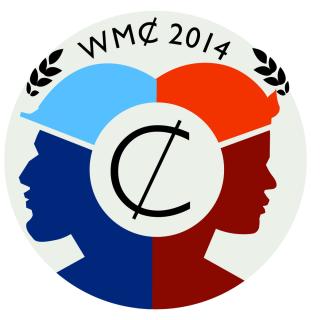
Ryan Murphy on Flight Attendant Activism
The 1980s were a time of transformation for workers across the U.S., and flight attendants were on the front line of the struggles of the era, as they saw the impacts of deregulation, the breaking of the air-traffic controllers union, and the rising power of stockholders over everyday management of firms. Our guest today, Ryan Murphy, shows how all of the elements coalesced with broader changes in sexual and gender relations. Murphy’s history of flight attendant activism shows how important it is to see all these elements working together. Both workers and bosses had different conceptions of the family, which each group tried to utilize to achieve their goals. Ryan Patrick Murphy—a former San Francisco-based flight attendant for United Airlines and Council Representative for Association of Flight Attendants-CWA Council 11—is Assistant Professor of History and Women's, Gender, and Sexuality Studies at Earlham College in Richmond, Indiana. He is author of Deregulating Desire.
5 Mars 201739min

Mehrsa Baradaran on Banking for Lower Income Americans
How does the fact that banks do not have to make their services accessible for all of us impact ordinary people? Why should we see banks as institutions that must be accountable to the public, and what would change in American life if we did? Listen to find out!
1 Feb 201742min

Brooke Harrington on Wealth Managers and the One Percent
In April, the high volume leak of the Panama Papers revealed an often unseen world of money and power. The leak of 11.5 million files came from the Panama-based law firm Mossack Fonseca, which helps facilitate movement of money across accounts and borders, frequently with the goal of evading taxation and legal judgments. The leak placed the financial dealings of global celebrities and politicians, including Simon Cowell and Pedro Almodovar, under scrutiny. Vladimir Putin, though unnamed in the leak was connected to upwards of $2 billion of assets. And the revelations provoked such controversy for the Prime Minister of Iceland that he was forced to resign. While the celebrity names got a good deal of the headlines, firms like Mossack Fonseca are instrumental to the creation of offshore tax havens. Our guest today, Brooke Harrington, set out to understand this world and the people who make it possible. She studied to become a wealth manager, so as to learn about the world of the global elite and how this labor force has contributed to global inequality. This study took her to 18 countries. And it offers a rare insight into the processes by which a small set of people control a good deal of the world’s assets. Like the Panama Papers, this research documents a world that is, as Brooke puts it, technically legal, but socially illegitimate. Brooke Harrington is Associate Professor of Sociology at Copenhagen Business School, Denmark. You can find out more about Capital without Borders here.
3 Jan 201754min

Christy Chapin on the Centrality of Insurance Companies to American Health Care
Why is health care in the United States so expensive? Why does the United States find it so difficult to provide quality, affordable health care to most of its citizens? What is the relationship among the government, doctors, and insurance companies? Christy Chapin explains how insurance companies became so central to the provision of health care in the United States.
2 Dec 201645min

Sarah Jaffe on Social Movements and the 2008 Recession
The recent years since the 2008 recession have seen a growth of protest movements. Sarah Jaffe’s book, Necessary Trouble, describes how people have been fighting back against bank bailouts, budget cuts, police brutality, and much more. Today, we reflect on this recent history of capitalism and what it might indicate about the future. Sarah Jaffe is a Nation Institute fellow and an independent journalist covering labor, economic justice, social movements, politics, gender, and pop culture. Her work has appeared in The Nation, Salon, the Week, the American Prospect, the Washington Post, the Atlantic, and many other publications. She is the co-host, with Michelle Chen, of Dissent magazine’s Belabored podcast, as well as an editorial board member at Dissent and a columnist at New Labor Forum. Necessary Trouble: Americans in Revolt is her first book.
4 Nov 201640min

LaShawn Harris on Black Women and the Informal Economy
LaShawn Harris discusses how black women in the early twentieth century engaged in the informal economy - performing work that wasn't entirely legal - to get by and get ahead.
1 Okt 201640min

Sandy Hager on Public Debt and Inequality
Who owns the U.S. public debt? Why is it such an important commodity in global capitalism? Why does public debt provoke such intense political debate? And how can the quantitative data on the ownership structure of public debt provide insights into these topics? Our guest today, Sandy Hager reveals answers to all of these questions and more. Sandy Brian Hager is a Postdoctoral Fellow at the Weatherhead Center for International Affairs at Harvard University. He is author of Public Debt, Inequality, and Power: The Making of a Modern Debt State.
1 Sep 201641min

Daniel Amsterdam on the Business Campaign to Expand Government Spending
2 Aug 201641min





















